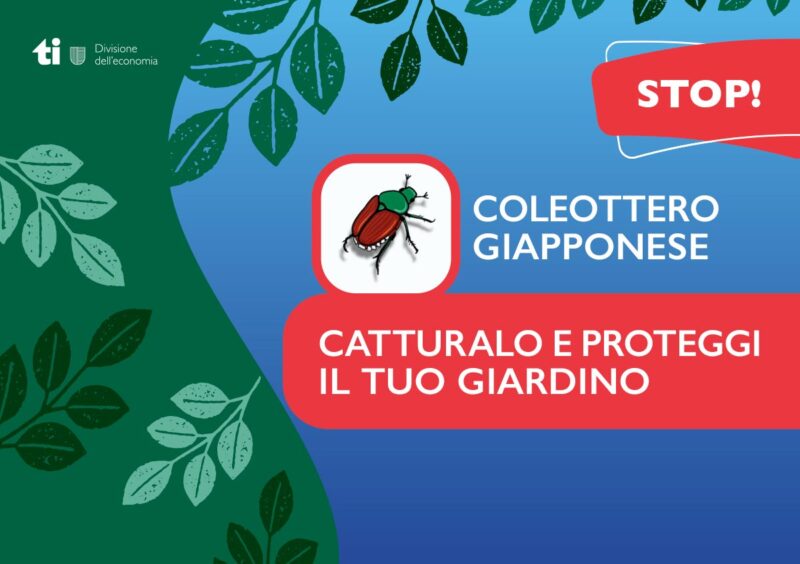the Municipality of Brissago would like to inform the public that the Plant Health Service has launched a new information campaign on Japanese beetle (Popillia japonica Newman). This initiative, active since June, aims to provide clear and practical indications to recognize and manage the presence of this invasive insect.
First found in Ticino in 2017, the Japanese beetle has spread rapidly to several regions of the canton. It is a Priority quarantine agency, for which federal legislation provides for specific containment and eradication measures.
At cantonal level, in addition to ordinary monitoring, pilot projects are underway to limit the population growth of this insect, in particular during the summer period, when adults are visible (June–September). The most affected municipalities, including Brissago, actively participate in the mass capture, a measure designed to reduce the impact of the infestation and address citizens’ concerns.
What can you do?
In case of discovery in your garden or on the territory, it is important to act promptly:
- Capture the insect manually or with the help of pheromone traps;
- Photographing the insect to facilitate reporting;
- Report presence via the online form on the official website: www.ti.ch/coleottero-giapponese;
- Properly dispose of captured insects: freeze them for at least two hours and then deliver them with municipal solid waste;
To protect your garden it is also useful:
- treat the lawn in autumn with roundworms to combat larvae;
- limiting irrigation to reduce oviposition;
- use anti-insect nets on sensitive plants.
Why it is important to collaborate
The Japanese beetle is a highly invasive insect that can damage ornamental plants, meadows, orchards and vineyards. The collaboration of citizens is therefore essential to monitor the territory and contain the spread.
Thanks to your reports, the Plant Health Service will be able to constantly update the cantonal situation and provide timely instructions for the management of the insect.
We would like to thank the entire population for their attention and cooperation.
